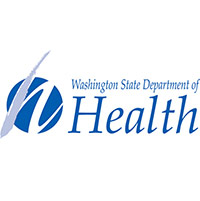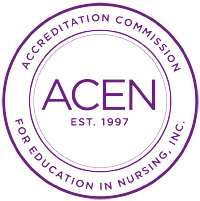Nursing: High Demand and Diverse Career Track
About
The Skagit Valley College Nursing Program is approved by the Washington State Board of Nursing and accredited by the Accreditation Commission for Education in Nursing (ACEN)

Washington State Board of Nursing
WA State Department of Health – WABON
111 Israel Road S.E., Tumwater, WA
Mailing Address: PO Box 47864
Olympia, WA 98504-7877
Phone: 360.236.4700 (call center)
Fax: 360.236.4738
Email: nursing@doh.wa.gov

Accreditation Commission for Education in Nursing
3390 Peachtree Road NE, Suite 1400
Atlanta, GA 30326
Telephone: 404.975.5000
Fax: 404.975.5020
ACEN Website
Mission and Philosophy
The goal of the Associate Degree Nursing (ADN) Program at Skagit Valley College (SVC) is to educate students to practice nursing within varied health care settings. Nursing education will assist the student to promote optimal level of health and wellness for the individual, family, and community.
SVC Mission and Nursing Program Mission
The ADN Program at SVC supports the college mission, which states “Skagit Valley College cultivates student learning and achievement; contributes to the educational, personal, and economic success of students; promotes equitable and thriving communities.” The Nursing Program mission is to:
- promote excellence in nursing education,
- increase nursing responsiveness to the health and healthcare needs of the community,
- share and promote best practices in nursing, and
- develop successful graduates who are practice ready and are engaged in lifelong learning to transform nursing.
Skagit Valley College Simulation Center
Skagit Valley College Simulation Center has, along with being in alignment with the SVC Mission and Nursing Program Mission and Vision, the following:
Mission: To provide a supportive and realistic simulation learning experience for all learners that promotes the attainment of safe, competent patient care skills, and fosters the development of critical thinking.
Vision: To be a leader in higher education by embracing and utilizing simulation as a critical tool for prelicensure nursing education, resulting in nurses providing the highest level of patient safety, patient care, and professionalism.
Nursing Program Philosophy
The ADN program philosophy reflects faculty beliefs centering on the seven core values of the National League of Nursing (NLN) Outcomes and Competency Framework Model (2010) including caring, diversity, ethics, excellence, holism, integrity and patient centeredness. These core values are found in the Student Learner Outcomes and flow through the curriculum. Consistent with the philosophy of the college, the faculty members also believe students should be facilitated in reaching goals commensurate with their diverse needs and individual abilities.
Program Learning Outcomes
The nursing philosophy supports the student learner outcomes of Human Flourishing, Nursing Judgment, Professional Identity and Spirit of Inquiry.
Human Flourishing: Advocate for patients and families in ways that promote their self-determination, integrity, and ongoing growth as human beings.
Nursing Judgment: Make judgments in practice, substantiated with evidence, that integrate nursing science in the provision of safe, quality care and promote the health of patients within a family and community context.
Professional Identity: Implement one’s role as a nurse in ways that reflect integrity, responsibility, ethical practices, and an evolving identity as a nurse committed to evidence-based practice, caring, advocacy, and safe, quality care for diverse patients within a family and community context.
Spirit of Inquiry: Examine the evidence that underlies clinical nursing practice to challenge the status quo, question underlying assumptions, and offer new insights to improve the quality of care for patients, families, and communities.
The nursing process is foundational to the curricular framework defined by the National League for Nursing (2010) and adopted by Skagit Valley College ADN program. The nursing process consists of Assessment, Diagnosis, Planning, Implementation and Evaluation.
Student Achievement Data
Year 2024
| Program Outcome | Expected Level of Achievement | Actual Level of Achievement |
|---|---|---|
| First time pass rate on National Council Licensure Exam for Nurses (NCLEX) | The pass rate for the NCLEX-RN exam will be at least 80% for all first-time test-takers. | 96.77% |
| Program Completion Rate | The program completion rate will be greater than 75% (percentage of students completing within 100% of program length). | 77% |
Nursing Program Curriculum Design
The curriculum design reflects the nursing mission, philosophy, and program objectives. Faculty adopted the NLN Core Components and Competencies for Associate Degree Graduates (NLN 2010) as the organizing framework for the program. Each component was defined by SVC faculty and competencies for each course and for SVC ADN students were developed. The curriculum design provides the foundation for nursing theory course content, laboratory experiences on campus, laboratory experiences in clinical setting, and evaluation of student learning.
Persons interested in a career in nursing need to be aware of potential hazards and risks inherent in the field. Nurses, including nursing students in clinical placements, work in many different environments, some of which are hazardous. Nurses and their clients are exposed to infectious diseases, radiation, hazardous equipment, and environments in which accidents occur. Nurses may spend a lot of time walking, bending, stretching, and standing. They are vulnerable to back injuries because they must often lift and move patients.
During the course of the nursing program, nursing students learn strategies to achieve the National Patient Safety Goals for minimizing safety hazards and preventing injury. Nurses are not only responsible for their own safety but also for the safety of their clients. Failure to apply the principles of safety may result in serious and/or potentially life-threatening injury to the nurse, the client, or other persons. Nursing students are held to the same standard as nurses. Safety violations that cause actual or potential harm to clients, self or others will result in immediate dismissal from the nursing program.
All nursing programs include a required clinical work experience. Clinicals are at medical facilities requiring travel to various regions of Skagit, Whatcom, Snohomish, and Island counties. All students accepted into the clinical experience must have reliable transportation. All experiences will be under the supervision of college nursing program faculty. Students will not be allowed to choose their clinical site experience (location, shift, days of week, etc.). The department chair and/or designated faculty select the facilities used for clinical sites and place qualified students.
It is recommended that you do not work while in the program. If you do have to work, we recommend that you work no more than 8 hours a week while in the full-time program and no more than 24 hours a week while in the part-time program.
Official Non-Discrimination Statement
Skagit Valley College (SVC) offers bachelor’s degrees, academic transfer degrees,
workforce education degrees and certificates, basic education for adults, and lifelong
learning opportunities. SVC is committed to equity as its framework in providing access,
supporting achievement, and strengthening the community.
It is the policy of SVC to provide a working and learning environment free from discrimination, harassment, and retaliation. SVC provides a drug-free environment and does not discriminate on the basis of race, color, creed, religion, national origin, sex, sexual orientation, and/or gender identity, pregnancy, genetic information, age, marital status, disability, honorably discharged veteran or military status in its programs and employment.
This policy also prohibits retaliation as a result of an individual filing a report of discrimination or harassment or participating in an investigation of a claim of discrimination or harassment.
This policy applies to all programs and facilities, including, but not limited to, admissions, educational programs, and employment. SVC complies with all Washington State antidiscrimination laws (Chapter 49.60 RCW) and the following federal laws relating to equal opportunity: Titles VI and VII of the Civil Rights Act of 1964, Title IX of the Education Amendments of 1972, Section 504 of the Rehabilitation Act of 1973, the Age Discrimination Act of 1975, and the Americans with Disabilities Act of 1990.
SVC has an open admission policy. Students must apply for admission and register for credit-bearing classes. SVC is committed to providing access, equal opportunity and reasonable accommodation in its services, programs, activities, education, and employment for individuals with disabilities. SVC will take steps to ensure that the lack of English language skills will not be a barrier to admission and participation in all educational programs.
Coordination of the compliance efforts of SVC with respect to equal opportunity and disability accommodation regulations is under the direction of Carolyn Tucker, Vice President of Human Resources/EEO at 360.416.7794 or carolyn.tucker@skagit.edu, 2405 E. College Way, Mount Vernon, WA 98273, for non-discrimination, equal opportunity, affirmative action, or the American with Disabilities Act policies.
SVC and the Disability Access Services (DAS) office are committed to ensuring equal access to all programs, services, and activities for people with disabilities. SVC and DAS are dedicated to working with students, staff, faculty, and community members in developing and implementing the most appropriate strategies and reasonable accommodations for an equitable experience while maintaining the academic standards and integrity of the mission of the college. If you need disability accommodation at an SVC event, please contact Disability Access Services at das@skagit.edu or visit Lewis Hall, room 114 on the Mount Vernon campus.
The following person is the designated Title IX Coordinator: Sandy Jordan, Title IX Coordinator at 360.416.7923 or sandy.jordan@skagit.edu or titleix@skagit.edu, 2405 E. College Way, Mount Vernon, WA 98273, for Title IX/504 compliance.
Upon admission, a candidate who discloses a disability and requests accommodation will be asked to provide documentation of his or her disability for the purpose of determining appropriate accommodations. The Department of Nursing will provide reasonable accommodations but is not required to make modifications that would alter the nature or requirements of the program or provide auxiliary aids that present an undue burden to Skagit Valley College and its clinical sites. To continue in the program, the candidate must be able to perform all essential functions either with or without accommodation.
Requests for accommodation should be directed to:
Disability Support Services
360.416.7654 (Mount Vernon campus)
360.679.5319 (Whidbey Island campus)
Successful completion of the program, however, does not guarantee eligibility to take the NCLEX licensing examination or the ability to become licensed to practice nursing. Candidates with concerns or questions about specific health conditions, personal histories or disabilities should contact the Washington State Nursing Commission (360.664.2881).
To be eligible to take the NCLEX (the nursing licensure exam), the nursing commission requires you to provide information about physical/mental conditions and any filed criminal charges. You will be required to answer Yes or No to a series of questions. It is important for students to be aware of these questions before starting the nursing program. To learn more about eligibility requirements please read this document: Nursing-Licensing Eligibility/Disqualifying Crimes. If you anticipate problems answering any of these questions, contact the commission directly.
You should also be aware that some clinical facilities are fingerprinting students for federal background checks and are randomly screening for drug usage. A criminal history may impact your ability to both attend a clinical class at selected clinical sites and receive a Washington State nursing license. If you have a criminal history it is important that you determine the impact this will have on your choice of a career.